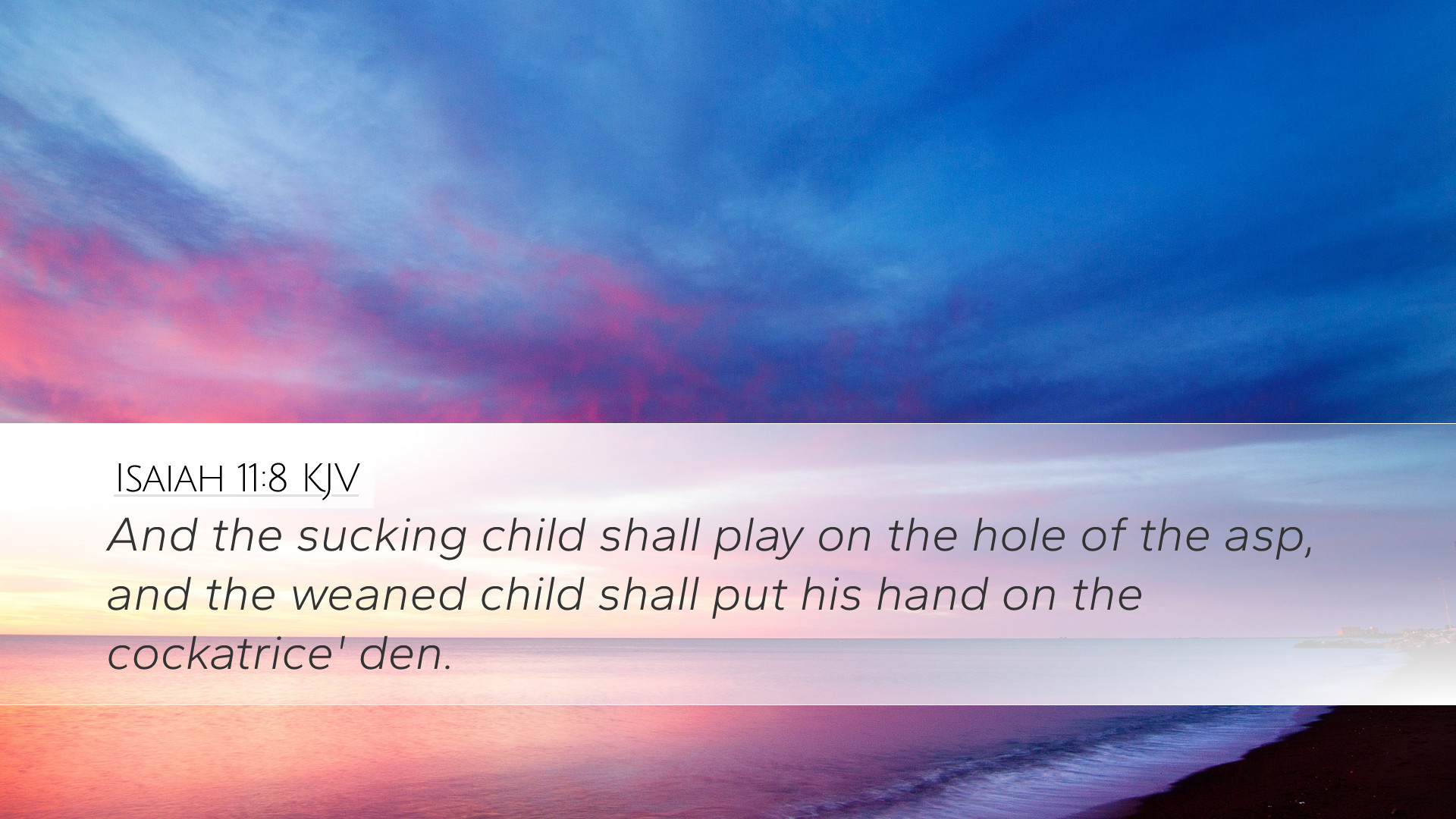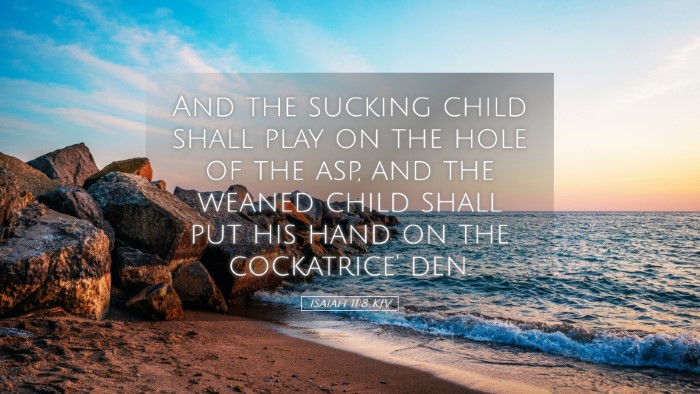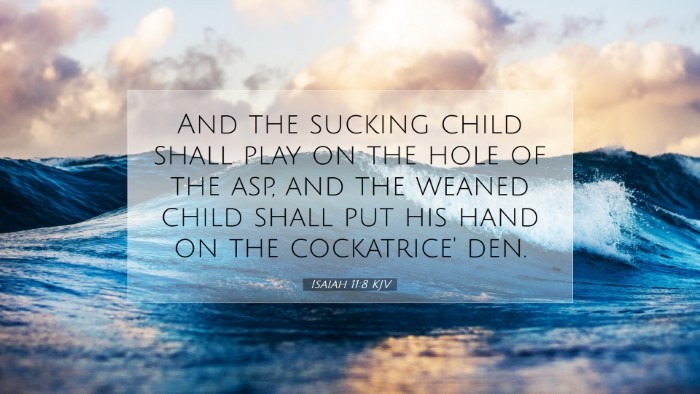Commentary on Isaiah 11:8
Isaiah 11:8 states, "The nursing child shall play by the cobra's hole, and the weaned child shall put his hand in the viper's den." This verse is rich in imagery and carries profound theological significance. In this commentary, we will draw on insights from public domain commentaries, focusing on its meaning and implications for believers.
Context and Overview
Isaiah is often seen as a prophet who brought messages of both judgment and hope. This chapter provides a prophetic vision of peace and restoration, presenting a future where natural enemies coexist harmoniously under the reign of the Messiah.
The Messianic Age
This verse pertains to the broader theme of the Messianic age, as prophesied in the earlier parts of Isaiah 11:
- Verses 1-2: The promise of a new leader emerging from the line of Jesse, filled with the Spirit of God.
- Verses 3-5: Descriptions of righteousness, faithfulness, and the establishment of justice.
The imagery of children playing unafraid amongst dangerous animals signifies a radical transformation of the world under Christ's reign, showcasing divine peace and safety.
Insights from Commentaries
Matthew Henry's Commentary
Matthew Henry emphasizes the miraculous nature of this peaceable kingdom where even the most feared creatures cease to be threats. He notes that:
- The Innocence of Childhood: The presence of children in this vision illustrates a return to innocence and safety that will characterize the coming kingdom.
- Symbolism of the Cobra and Viper: These serpents represent evil and danger; the fact that children are unafraid of them highlights the eradication of such threats under the Messianic rule.
Henry interprets this as a metaphor for the ultimate peace and reconciliation that Jesus Christ brings, where the fear of death and sin will be abolished for those who dwell in His presence.
Albert Barnes' Notes
Albert Barnes offers a detailed analysis of the verse, providing a historical context and its implications for the future. His key points include:
- Childlike Trust: Barnes suggests that the child represents a state of trust and openness to God's promises, contrasting with the fearfulness that characterizes a fallen world.
- Restoration of Creation: He highlights that the natural world will return to its original state of harmony and peace, as intended in creation before the fall.
- The Role of the Messiah: Barnes affirms that this verse looks forward to the time when Christ will establish His kingdom, providing safety and restoration for all creation.
Adam Clarke's Commentary
Adam Clarke approaches the verse by examining the implications for the believers of his day. His insights include:
- Spiritual Application: Clarke notes that the imagery serves to encourage believers, reminding them of the hope and security found in faith.
- Contrasting Realities: He highlights the contrast between the current state of the world, filled with danger, and the promised peace of the coming age.
Clarke suggests that this passage is intended to strengthen the faith of God’s people, reassuring them of the ultimate victory of God over evil.
Theological Themes
Isaiah 11:8 encapsulates several significant theological themes:
- Peace and Reconciliation: This verse embodies the hope of peace that transcends current torments and conflicts.
- Childlike Faith: The presence of children illustrates the call to return to a childlike faith, trusting in God’s goodness.
- The Nature of the Kingdom of God: It presents a radical reordering of creation, where fear is removed, and harmony is restored.
Application for Today
For pastors, students, and theologians, the insights from Isaiah 11:8 are vital:
- Encouragement: This passage invites us to reflect on the hope we have in Christ, especially during challenging times.
- Understanding of Christ’s Reign: It provides a framework for understanding the nature of Christ’s kingdom, encouraging believers to live in light of its reality.
- Call to Safety in God: Just as children are safe, believers are called to rely on God for their safety in a dangerous world.
Conclusion
Isaiah 11:8 invites us into a profound understanding of the peace and safety found in God's kingdom. Drawing from the insights of respected commentators, we see that this verse not only paints a vivid picture of the future but also calls us to cultivate a faith that resembles the innocence and trust of a child. As we anticipate the fulfillment of these promises, may we be encouraged and emboldened in our witness to the world.


